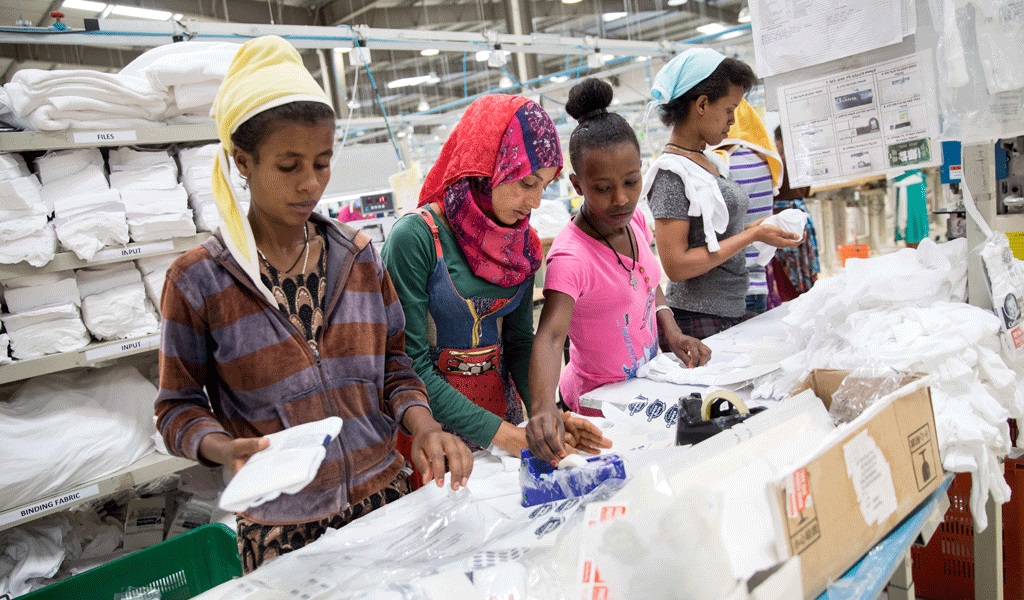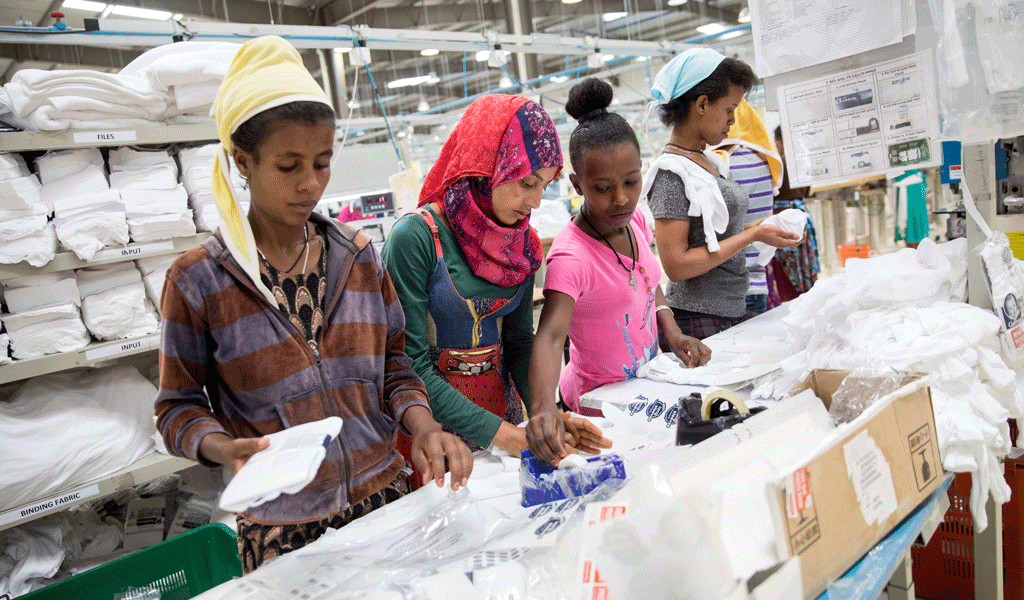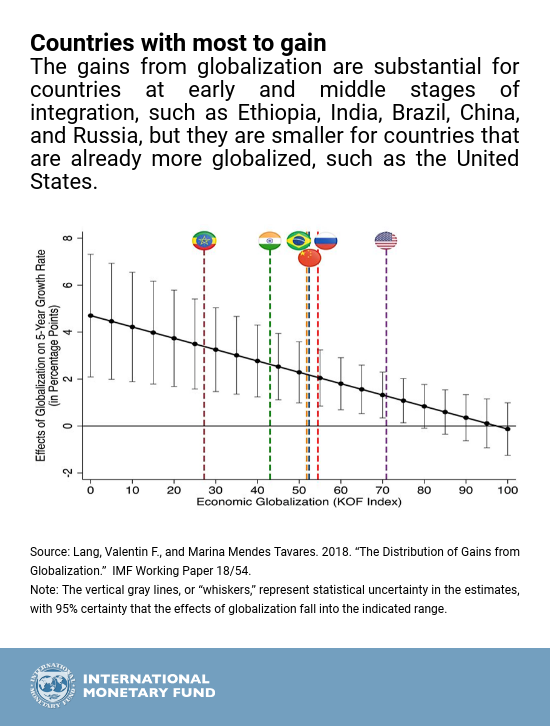May 31, 2018
[caption id="attachment_23605" align="alignnone" width="1024"] A garment factory in Ethiopia, which globalization has helped to boost its growth (photo: Kay Neitfeld/Newscom). [/caption]
A garment factory in Ethiopia, which globalization has helped to boost its growth (photo: Kay Neitfeld/Newscom). [/caption]
While globalization is generally good for economic growth, the benefits are subject to diminishing marginal returns, according to a recent study of 147 countries from 1970 to 2014. The study looks at how globalization affects the distribution of incomes across and within countries.
The IMF Working Paper The Distribution of Gains from Globalization, by Marina Mendes Tavares and Valentin F. Lang, reveals that in rich economies, globalization still represents a source of economic growth, but the expected gains are lower than in poor and emerging market economies, where globalization increases economic well-being and reduces poverty.
Our Chart of the Week shows that globalization’s effects on a country’s growth depend crucially on how much a nation is already integrated into the global economy. Most low-income and emerging market nations are still far from the levels of integration that advanced economies have already reached. The less wired a country is into the global economy, the greater the positive impact of increasing globalization.
The black line shows the effects on a country’s five-year growth rate from a one-point increase in economic globalization. Low-income countries such as Ethiopia, indicated by the flag on the far left, have more to gain than advanced economies such as the United States, whose flag is on the far right. The chart also shows the level of globalization and potential growth gains of countries that are as globalized as India, Brazil, China, and Russia.
The study also evaluates how income gains are distributed within countries. It finds that globalization is often associated with widening economic inequality, putting more money into the pockets of the rich than into those of the poor. While in the average developing economy the poor as well as the wealthy benefit from globalization, in many advanced economies globalization often has little effect on the incomes of the poor.
But government policies matter in making the benefits of globalization more inclusive. Investments in education that raise skill levels, as well as taxes and transfers that spread the benefits more broadly, can help globalization fulfill its promise of generating gains for all.
Read the IMF Working Paper and the authors’ column in Vox.





